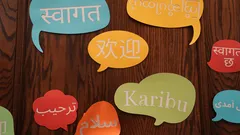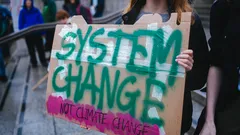104
5
5 minutes
Suggested Articles

First-generation Ivy Leaguers triumph over unique college challenges
Discover key insights, life hacks, and data-driven tips for first-generation college students thriving in prestigious U.S. universities. Find practical strategies, unique challenges, and fresh perspectives essential for student success.

Students and educators defend free speech as campus politics reshape college life
Civic Education

Teachers and parents strengthen schools as AmeriCorps faces uncertain future
News & Updates

Americans face powerful stakes as NASA funding shapes national innovation and dreams
News & Updates

Federal funding delays threaten vital support for US students and schools
News & Updates

Americans build empathy and strengthen democracy through language learning
Civic Education

United Nations calls climate change “the biggest global threat of our time”
Civic Education

Colorado schools unlock $80M in federal funding, fueling big gains for students
Hiring

Patriotic education reshapes American classrooms as the nation nears 250 years
Civic Education

Future students weigh Harvard's evolving prestige against modern ambition
Hiring

Columbia University’s $221 million deal sparks breakthroughs for students and science
Civic Education

First-generation Ivy Leaguers triumph over unique college challenges
Hiring

Americans brace for possible Social Security cuts that reshape retirement
News & Updates

Why this Florida data leak changes how we think about privacy
News & Updates

Build your own AI chatbot and unlock hands-on tech superpowers
Resources & Tools

How to outsmart hidden medical expenses in your golden years
Civic Education

California workers secure jobs this summer with new 2025 laws
Hiring
 Love Women Vibes
Love Women Vibes

Comments